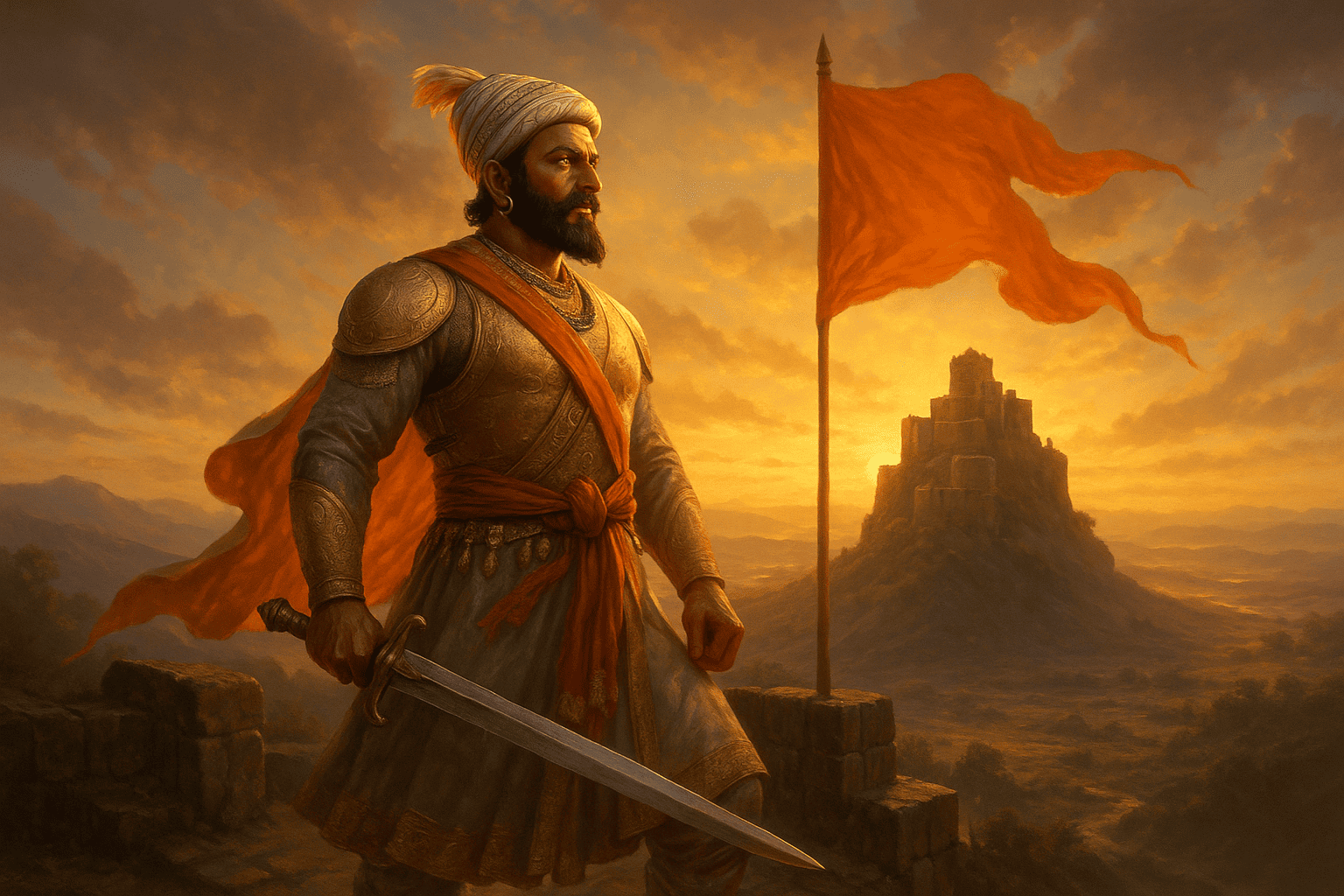Introduction
Chhatrapati Shivaji Maharaj is not only a legendary warrior king but also a visionary leader whose principles of governance, warfare, and ethics have left a lasting legacy on Indian history. At a time when India was fragmented and oppressed, Shivaji rose to become a symbol of courage, strategic foresight, and inclusive leadership. His life is a rich source of leadership lessons, especially relevant for today’s youth and future changemakers. This blog will explore 10 powerful leadership lessons from Shivaji Maharaj for modern India, drawing from his exceptional management skills and bold vision.
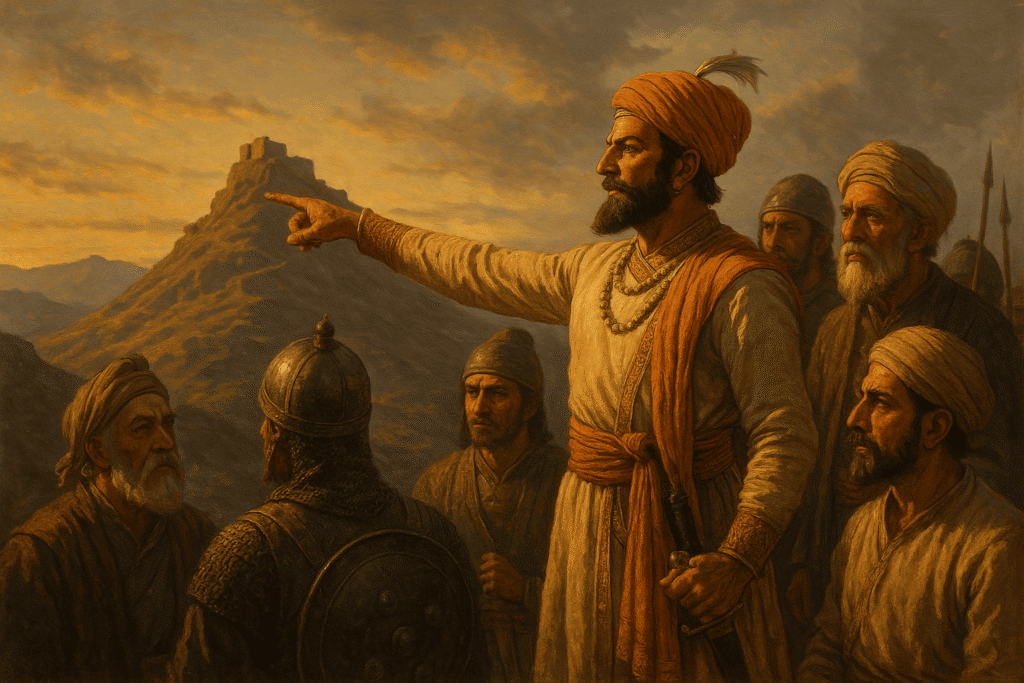
1. Visionary Leadership: The Dream of Swarajya
Understanding the Power of Purpose
Shivaji Maharaj was a master of strategic vision. At a time when most rulers were focused on territorial gains, Shivaji’s idea of Swarajya (self-rule) was a political revolution. His vision was not just about ruling a kingdom but empowering people to be free and self-governed.
Relevance Today:
In modern leadership, having a clear vision is fundamental. Whether you’re a student leader, an entrepreneur, or a policymaker, defining your purpose gives you a roadmap to success. Like Shivaji, leaders today must have a long-term goal beyond personal gain.
2. Strategic Planning: Master of Guerrilla Warfare

Innovation in the Face of Adversity
Facing massive Mughal armies with limited resources, Shivaji employed guerrilla warfare and psychological tactics. He used terrain knowledge, fast movements, and surprise attacks to defeat stronger enemies.
Relevance Today:
Modern leadership from Indian history teaches us to be strategic in overcoming big challenges. Shivaji Maharaj’s leadership shows that innovation, not just power, wins battles be it in exams, business competition, or social movements.
3. Organizational Skills: The Ashta Pradhan Mandal
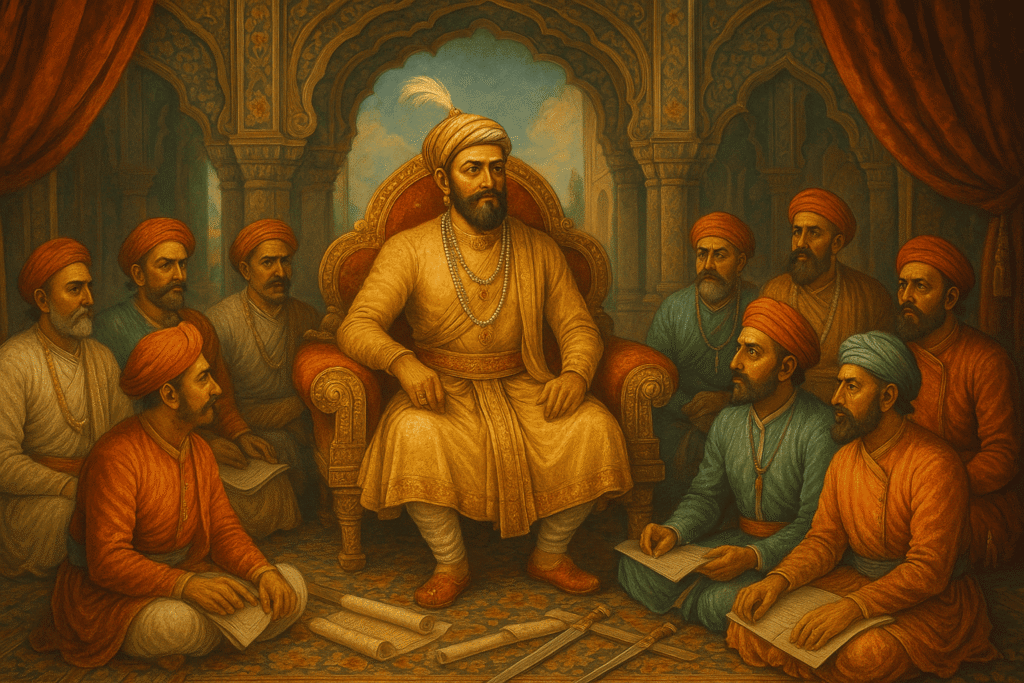
Building a Strong Administrative Backbone
Shivaji established a highly efficient cabinet called the Ashta Pradhan Mandal eight ministers handling different governance aspects. This shows his exceptional management skills in delegating responsibilities effectively.
Relevance Today:
Leadership today involves teamwork and effective management. Students managing events or group projects can learn from Shivaji Maharaj’s organizational style: assign roles clearly, value expertise, and trust your team.
4. Empowerment and Decentralization
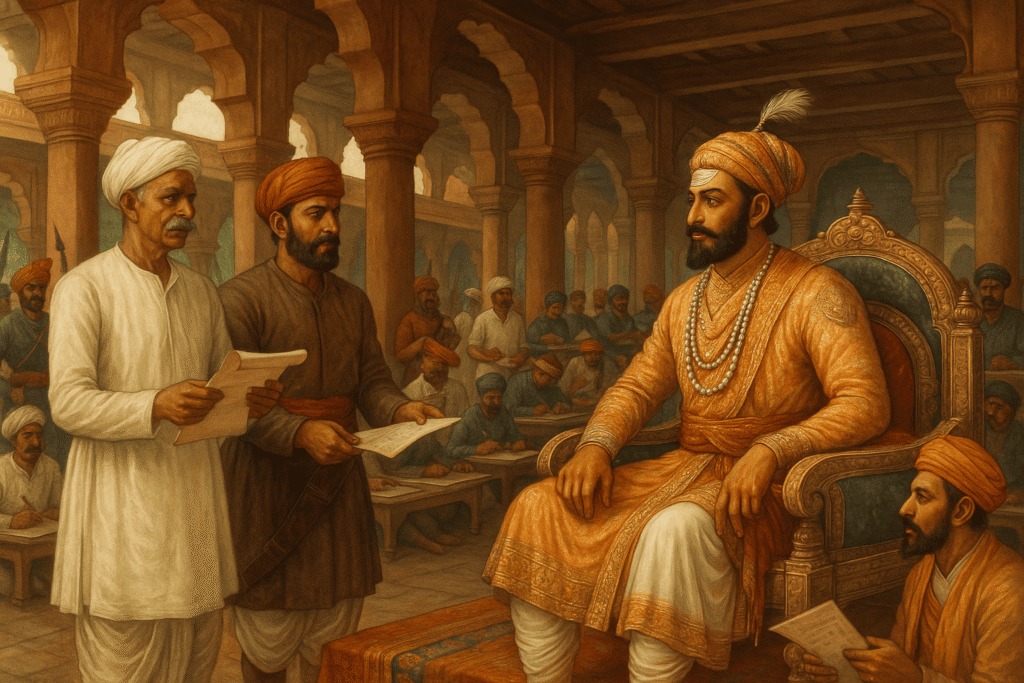
Strength through People
Unlike autocratic rulers, Shivaji empowered his local commanders, village heads, and administrative officers. He practiced decentralized governance, allowing local issues to be addressed quickly and efficiently.
Relevance Today:
Modern leaders who empower teams and encourage ownership often build stronger organizations. Shivaji’s model proves that leadership is about enabling others to lead.
5. Respect for All Religions
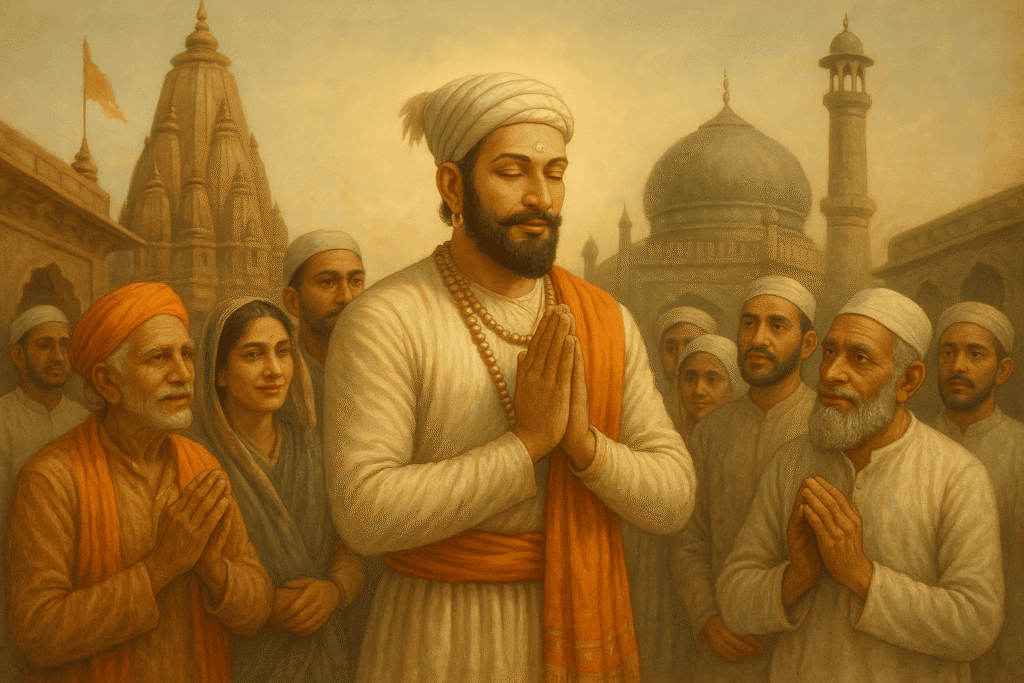
Inclusive Leadership
Despite being a devout Hindu, Shivaji Maharaj respected all religions. He never destroyed places of worship and even employed Muslim officers in key positions. This earned him the love of people across faiths.
Relevance Today:
In a diverse country like India, inclusive leadership is more important than ever. Shivaji Maharaj leadership reflects the values of harmony and unity that modern leaders must embody.
6. Women’s Safety and Empowerment
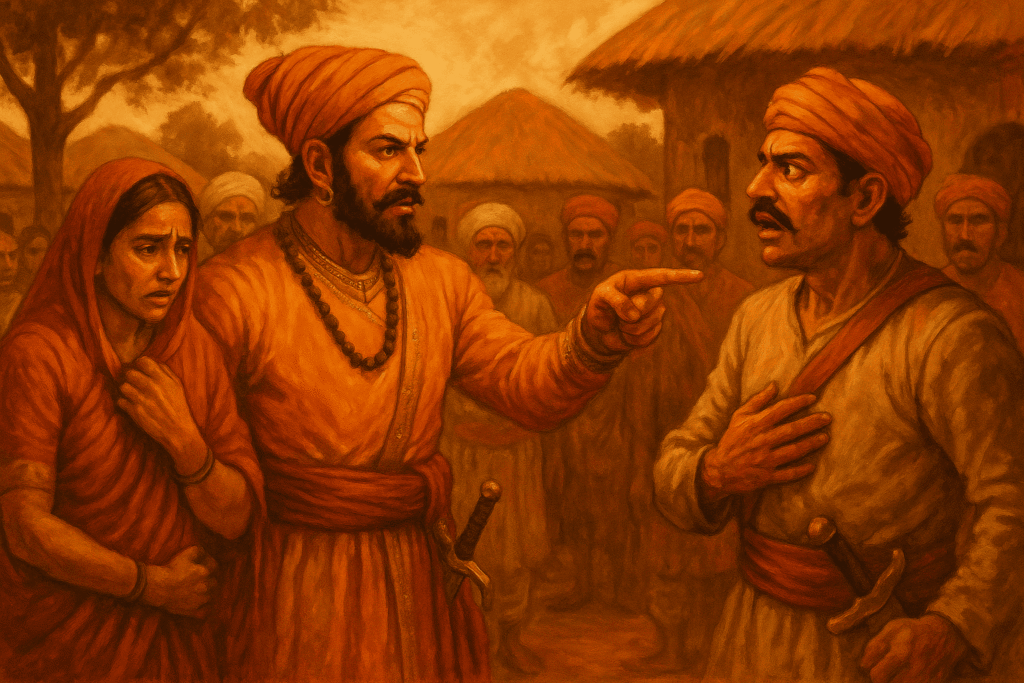
A True Gentleman King
Shivaji was known for his strict policies against the mistreatment of women. His army was instructed to treat women with dignity, and he punished violators severely.
Relevance Today:
Leaders who uphold ethics and respect for all genders set lasting examples. For young students, Shivaji teaches that leadership is also about standing for values that protect the vulnerable.
7. Communication and Charisma
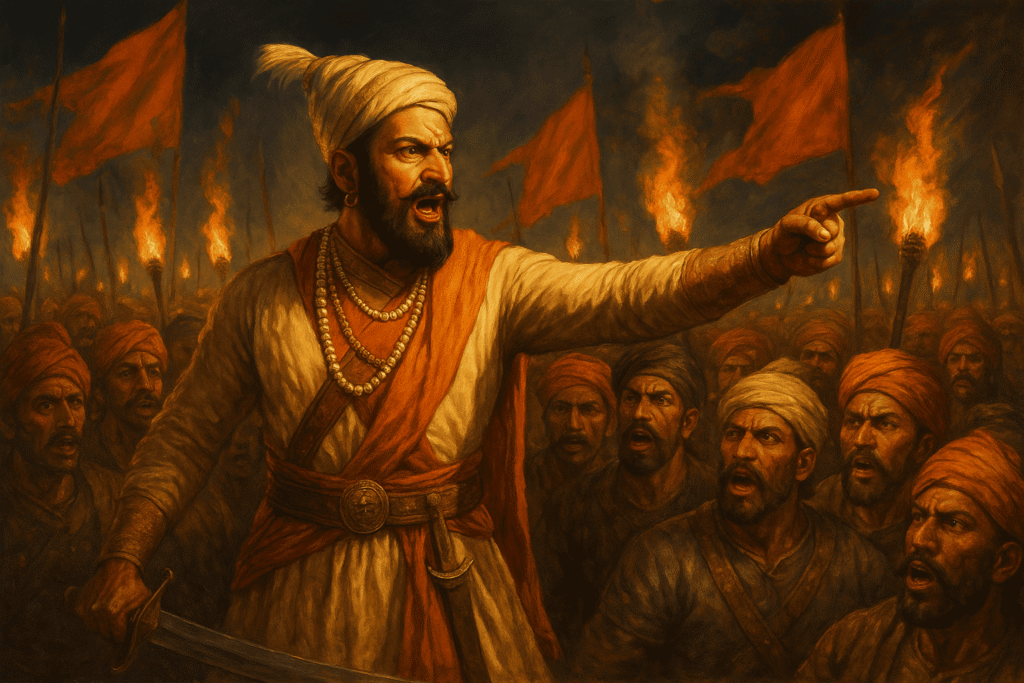
The Power of Connection
Shivaji Maharaj connected deeply with his people. His ability to motivate his troops, win over local leaders, and inspire masses came from his charisma and clear communication.
Relevance Today:
Good leaders today must also be great communicators. Whether delivering a speech or resolving conflicts, communication defines a leader’s ability to influence and inspire.
8. Adaptability and Innovation
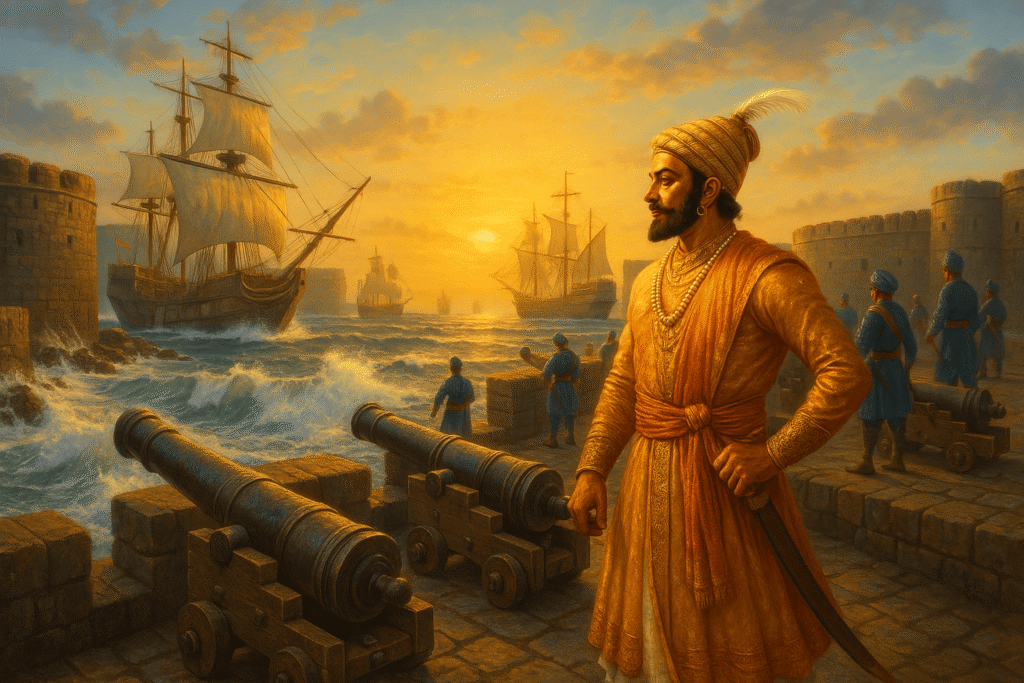
Staying Ahead of the Curve
Shivaji was among the first Indian rulers to build a navy, understanding the importance of maritime defense. His ability to adapt to new threats and opportunities kept him ahead of rivals.
Relevance Today:
In today’s fast-paced world, adaptability is a top leadership skill. Shivaji’s example shows that embracing change and new technology is key to long-term success.
9. Humility and Leading by Example
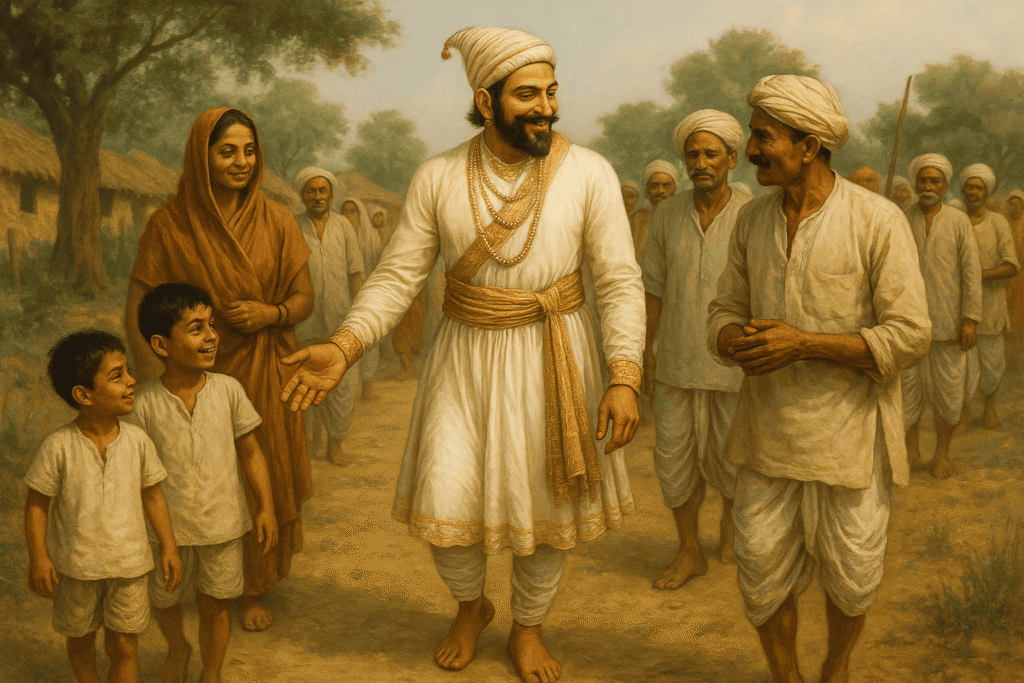
Walking the Talk
Despite his power, Shivaji Maharaj was known for his humility. He often shared meals with soldiers, respected the wisdom of elders, and lived a disciplined life.
Relevance Today:
Modern leadership isn’t about ego; it’s about service. Shivaji Maharaj leadership teaches that leading by example builds trust, loyalty, and moral authority.
10. Loyalty and Team Building
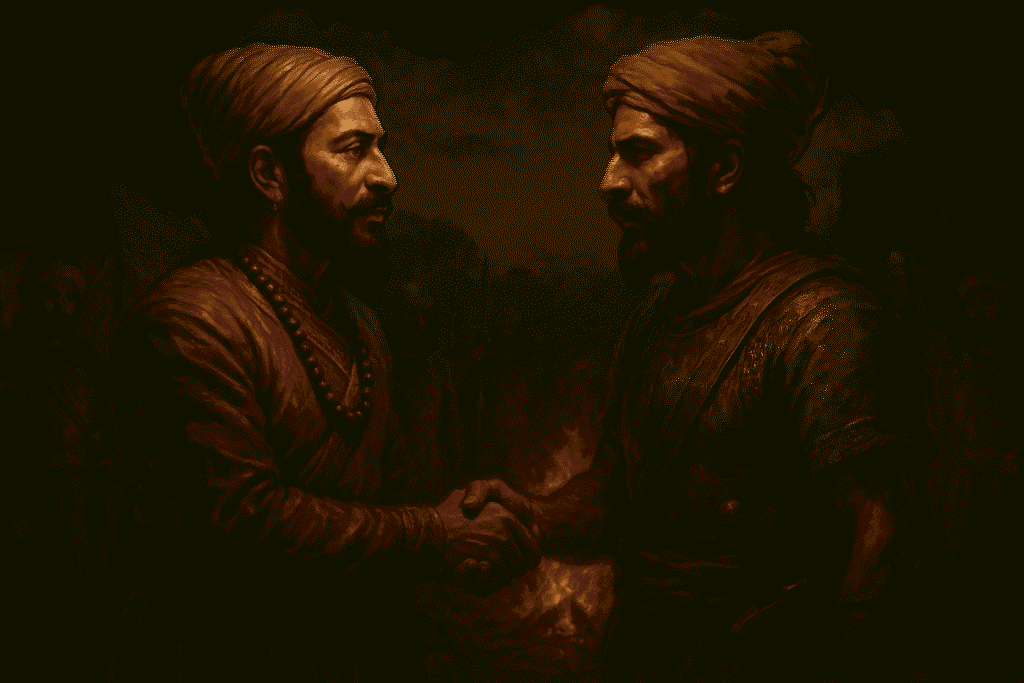
Building a Brotherhood
Shivaji Maharaj inspired fierce loyalty in his followers. His leadership nurtured bonds among his commanders and soldiers, creating a warrior community that stood strong against massive empires.
Relevance Today:
Team spirit and loyalty are cornerstones of every successful institution. Whether in school projects or professional life, leaders must foster relationships built on trust and shared values.
Conclusion: Shivaji Maharaj A Timeless Blueprint for Indian Leadership
From the battlefields of the Deccan to the corridors of modern classrooms, Shivaji Maharaj leadership echoes through time. His vision, ethics, and adaptability are a powerful reminder that leadership is not about dominance it’s about purpose, courage, and responsibility.For students, entrepreneurs, and future leaders, the leadership lessons from Shivaji offer a roadmap to navigate modern India’s complex challenges. Among the great Indian leaders, Shivaji stands as a timeless mentor, offering tools to shape a better future.
